
A musical ensemble, also known as a music group or musical group, is a group of people who perform instrumental or vocal music, with the ensemble typically known by a distinct name. Some music ensembles consist solely of instrumentalists, such as the jazz quartet or the orchestra. Other music ensembles consist solely of singers, such as choirs and doo wop groups. In both popular music and classical music, there are ensembles in which both instrumentalists and singers perform, such as the rock band or the Baroque chamber group for basso continuo and one or more singers. In classical music, trios or quartets either blend the sounds of musical instrument families or group together instruments from the same instrument family, such as string ensembles or wind ensembles. Some ensembles blend the sounds of a variety of instrument families, such as the orchestra, which uses a string section, brass instruments, woodwinds and percussion instruments, or the concert band, which uses brass, woodwinds and percussion.

In Western classical music, a motet is mainly a vocal musical composition, of highly diverse form and style, from high medieval music to the present. The motet was one of the pre-eminent polyphonic forms of Renaissance music. According to Margaret Bent, "a piece of music in several parts with words" is as precise a definition of the motet as will serve from the 13th to the late 16th century and beyond. The late 13th-century theorist Johannes de Grocheo believed that the motet was "not to be celebrated in the presence of common people, because they do not notice its subtlety, nor are they delighted in hearing it, but in the presence of the educated and of those who are seeking out subtleties in the arts".
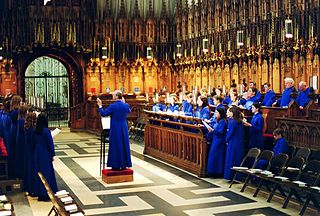
A choir is a musical ensemble of singers. Choral music, in turn, is the music written specifically for such an ensemble to perform. Choirs may perform music from the classical music repertoire, which spans from the medieval era to the present, or popular music repertoire. Most choirs are led by a conductor, who leads the performances with arm, hand, and facial gestures.
The 18th Annual Grammy Awards were held February 28, 1976, and were broadcast live on American television. They recognized accomplishments by musicians from the year 1975.
The 9th Annual Grammy Awards were held on March 2, 1967, at Chicago, Los Angeles, Nashville and New York. They recognized accomplishments of musicians for the year 1966. The 9th Grammy Awards is notable for not presenting the Grammy Award for Best New Artist. Frank Sinatra won 5 awards.
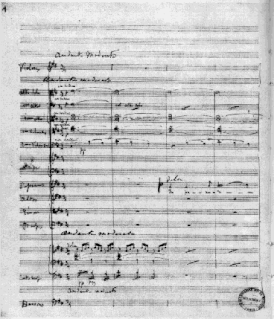
Gabriel Fauré composed his Requiem in D minor, Op. 48, between 1887 and 1890. The choral-orchestral setting of the shortened Catholic Mass for the Dead in Latin is the best-known of his large works. Its focus is on eternal rest and consolation. Fauré's reasons for composing the work are unclear, but do not appear to have had anything to do with the death of his parents in the mid-1880s. He composed the work in the late 1880s and revised it in the 1890s, finishing it in 1900.

Alfred Roubenovich "Avet" Terterian was an Armenian composer, awarded the Konrad Adenauer Prize.
A Symphony to Dante's Divine Comedy, S.109, or simply the "Dante Symphony", is a choral symphony composed by Franz Liszt. Written in the high romantic style, it is based on Dante Alighieri's journey through Hell and Purgatory, as depicted in The Divine Comedy. It was premiered in Dresden in November 1857, with Liszt conducting himself, and was unofficially dedicated to the composer's friend and future son-in-law Richard Wagner. The entire symphony takes approximately 50 minutes to perform. It premiered on 7 November 1857.
Henri Léon Marie-Thérèse Pousseur was a Belgian classical composer, teacher, and music theorist.
Bernard Rands is a British-American contemporary classical music composer. He studied music and English literature at the University of Wales, Bangor, and composition with Pierre Boulez and Bruno Maderna in Darmstadt, Germany, and with Luigi Dallapiccola and Luciano Berio in Milan, Italy. He held residencies at Princeton University, the University of Illinois, and the University of York before emigrating to the United States in 1975; he became a U.S. citizen in 1983. In 1984, Rands's Canti del Sole, premiered by Paul Sperry, Zubin Mehta, and the New York Philharmonic, won the Pulitzer Prize for Music. He has since taught at the University of California, San Diego, the Juilliard School, Yale University, and Boston University. From 1988 to 2005 he taught at Harvard University, where he is Walter Bigelow Rosen Professor of Music Emeritus. For his notable students, See: List of music students by teacher: R to S#Bernard Rands.

Augusta Read Thomas is an American composer and professor.

Kerry Andrew is an English composer, performer and author.

Sophie Lacaze is a French composer.
Lawrence Ball is an English musician and composer who lives in North London. He produces multi-media compositions, performs in concert, and also works as a private tutor in mathematics, music theory and physics.
Ofer Ben-Amots is an Israeli-American composer and teacher of music composition and theory at Colorado College. His music is inspired by Jewish folklore of Eastern-European Yiddish and Judeo-Spanish Ladino traditions. The interweaving of folk elements with contemporary textures creates the dynamic tension that permeates and defines Ben-Amots' musical language.

Jean-Pierre Isaac in Belgium, emigrated to Quebec in 1961. Jean-Pierre Isaac is a bilingual lyricist, composer, programmer, DJ, recording studio owner and a music producer. His contributions to music and his national and international success have earned him many awards.
Basso profondo, sometimes basso profundo or contrabass, is the lowest bass voice. Basso profondo Tim Storms holds the Guinness World Record for the "lowest note produced by a human".
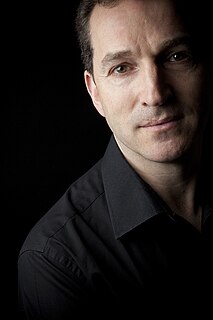
Ben Parry is a British musician, composer, conductor, singer, arranger and producer in both classical and light music fields. He is the Director of London Voices and Artistic Director of the National Youth Choirs of Great Britain.
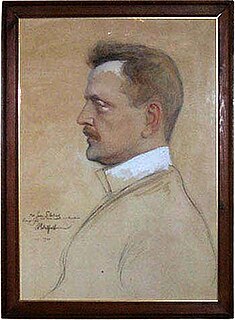
Snöfrid, Op. 29, is a melodrama or "improvisation for narrator, mixed choir and orchestra" by Jean Sibelius. He completed it in 1900 on a text by Viktor Rydberg. It was first performed in Helsinki on 20 October 1900, with the Orchestra of the Helsinki Philharmonic Society, conducted by Robert Kajanus.
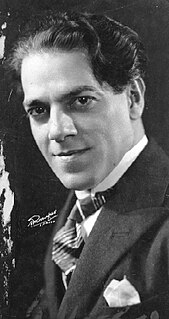
Symphony No. 10, Sumé pater patrium: Sinfonia ameríndia com coros (Oratorio) is a composition by the Brazilian composer Heitor Villa-Lobos, written in 1952–53. The broadcast performance of the world-premiere performance under the composer's direction lasts just over 67 minutes.












